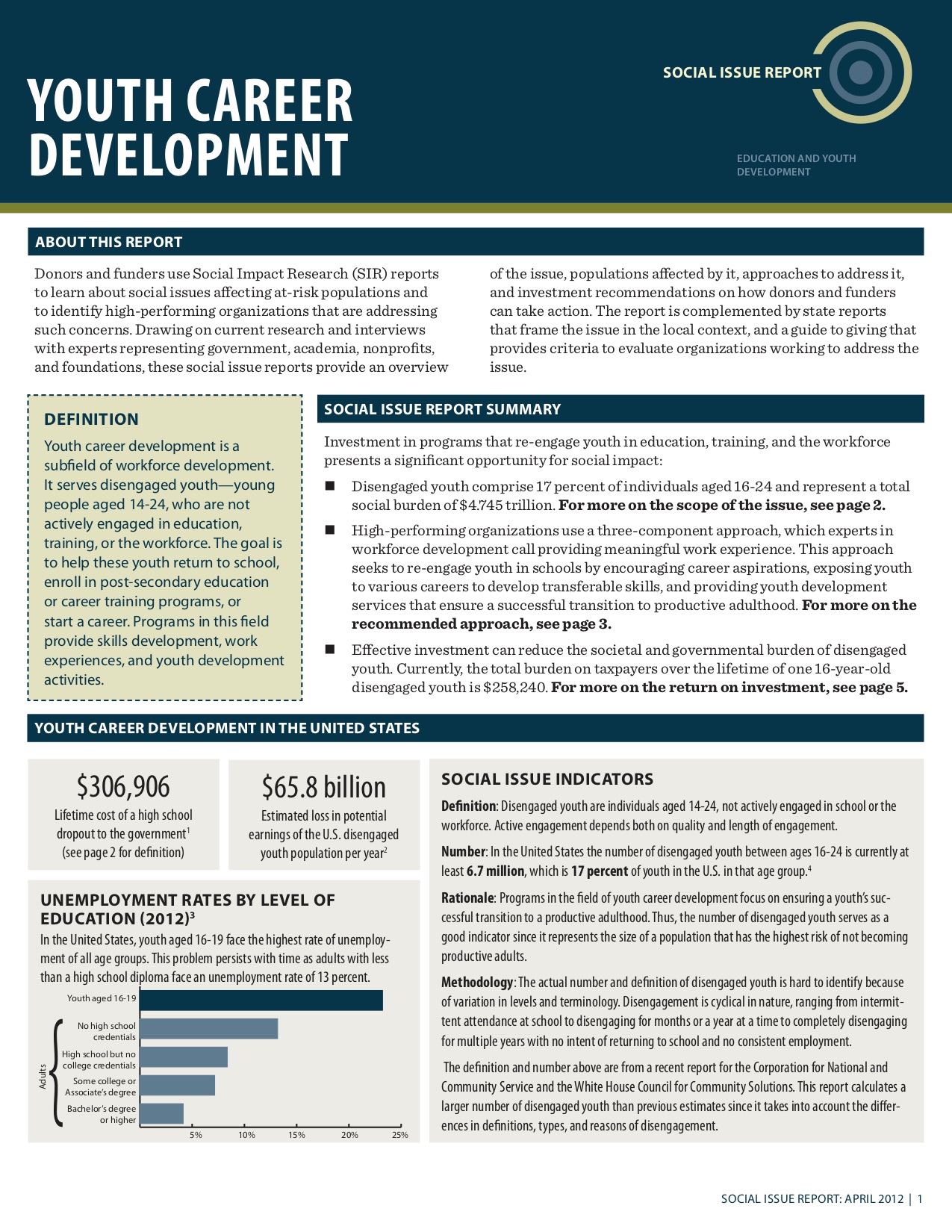Youth Career Development

Summary
Read our youth career development Social Issue Report, which includes: an overview of the social issue, an investment recommendation, information on the return on investment, and ways to take further action.
This report forms the foundation of the program quality assessments conducted for youth career development members of the Peer Performance Exchange. The “Recommended Approach” section of the report provides an overview of the program components Root Cause analysts assess.
In the United States, youth aged 16 to 19 face the highest rate of unemployment of all age groups. This problem will only increase with time, as adults with less than a high school diploma face an unemployment rate of 13 percent. For youth to be successful, traditional education needs to be supplemented with further education and transferable work experience. Thus, in addition to lacking the necessary skills for a future job, youth who disengage from school also fail to gain the minimum level of post-secondary training necessary for employment eligibility.
Youth career development is a subfield of workforce development. It serves disengaged youth – young people aged 14 to 24, who are not actively engaged in education, training, or the workforce. The goal is to help these youth return to school, enroll in post-secondary education or career training programs or start a career. Programs in this field provide skills development, work experiences, and youth development activities.
Learn more about youth career development in Massachusetts and New York.
Check out our Guide to Giving for donors and funders interested in youth career development.
ABOUT SOCIAL ISSUE RESEARCH:
Social Issue Research (SIR) reports are a resource to help donors and funders learn about specific social issues affecting at-risk populations and identify high-performing organizations that are addressing those issues. Drawing on research and interviews with experts representing government, academia, nonprofits, and foundations, social issue reports provide an overview of the issue, populations affected by it, approaches to address it, and investment recommendations on how donors and funders can take action. The report is complemented by state reports that frame the issue in the local context and a method – a guide for donors – that provides criteria to evaluate organizations working to address the issue.
Table of Contents:
- Social Issue Report Summary
- Facts: Youth Career Development in the United States
- Social Issue Overview: Why Youth Career Development Matters
- Recommended Approach to Youth Career Development
- Return on Investment
- Investment Recommendation
- Take Action
With Us

